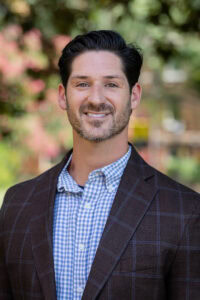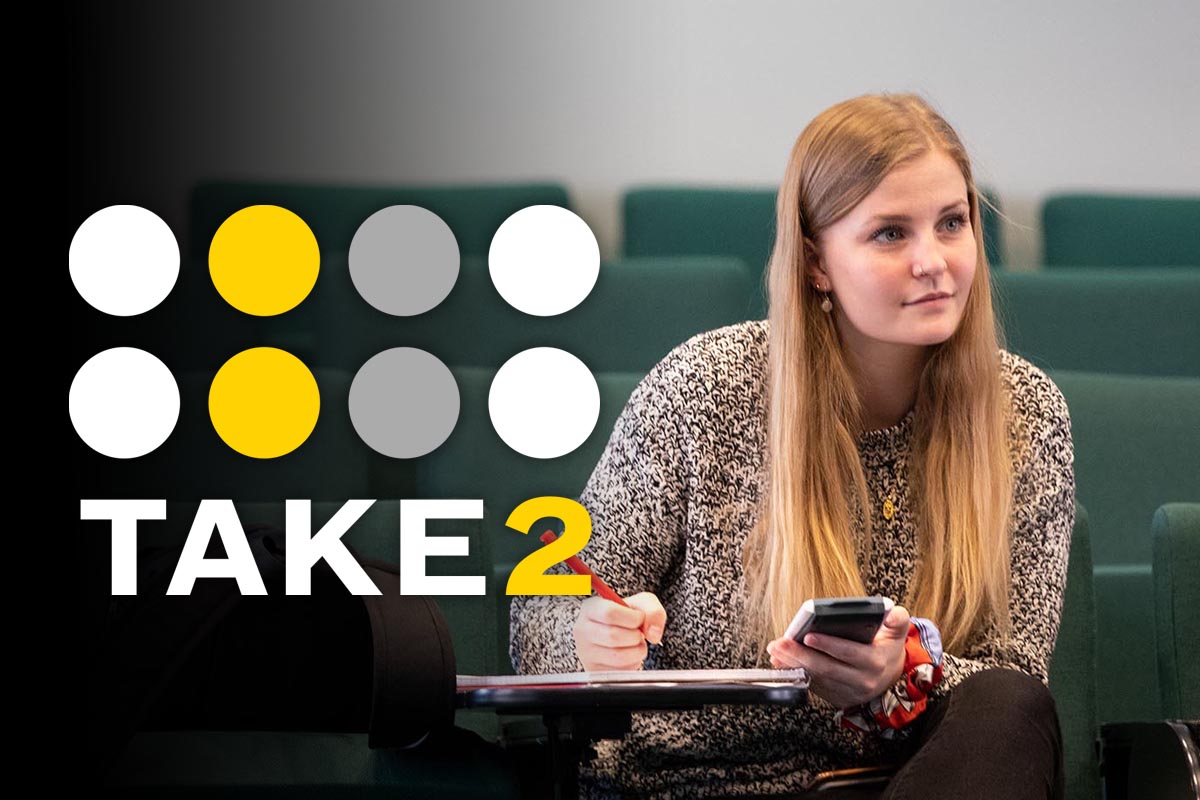Q&A with new faculty: Colin Pennington

Colin Pennington
In Colin Pennington’s classes, students take an active role.
“Ideally, my role as an instructor is to facilitate students’ learning experiences, engage their curiosity, and help them discover the personal meanings of the class content as they internalize it and interpret it for their professional and personal use,” said Pennington, an assistant professor of sport and exercise studies at Randolph.
“My hope is that students recognize the value of learning and applying what is discussed in class to themselves and to their communities,” he added. “Typically, this requires students to take ownership of their learning experience, rather than be passive in the teaching/learning process. I have found students tend to appreciate this approach.”
Pennington holds a bachelor’s degree in pedagogical kinesiology with a sub-concentration in biology and a masters in exercise science with a sub-concentration in strength and conditioning, both from the University of Texas at Arlington.
During his time there, he also taught classes and conducted research as a grad assistant and worked as the head coach and instructor for an after-school character development class at a low-income school.
Pennington later earned his doctorate in sport pedagogy with a concentration in health promotion from the University of Alabama at Tuscaloosa while teaching classes and doing research.
He has also served as coordinator of the Physical Education Teacher Education program at Cornell College in Mount Vernon, Iowa; director of exercise and sports studies degrees and Scholarship Development Fellow at Tarleton State University in Fort Worth, Texas; and coordinator of the Health and Physical Education Teacher Education programs at York College in the City University of New York system.
How did you first become interested in your field of study and your research into physical education and public health promotion?
I became interested in kinesiology and sport and exercise studies first as a student-athlete growing up, and my interests and passions for the academic field grew during my time as a physical educator and coach. It was observing my students develop civility and citizenship through physical activity opportunities where I realized the great potential for health, fitness, and wellness programs to do more for the community than simply address physical health.
My research focuses on occupational socialization, character development programs within physical education and sport, physical education teacher training, advancing movement opportunities for individuals with disabilities, and health and wellness interests proposed by students.
What attracted you to the job at Randolph?
The TAKE2 model Randolph offers is very interesting. Having worked at a similar institution on a unique instructional schedule, I appreciate and value innovative approaches in education. The immersive nature of TAKE2 allows for a more thorough interaction with course content. I endorse the liberal arts approach to higher education; I appreciate an institution that prioritizes students’ successes. I am excited about the opportunity to engage my research agenda with students and an institution that will appreciate those efforts.
What are your initial impressions of Randolph and its students?
Initially, I appreciate the commitment to learning students have already demonstrated. Many of my students are student-athletes. In my experience, student-athletes have a very challenging responsibility concerning role balance—as do students with work, family, and other responsibilities that consume time from their formal education. Nevertheless, already, I am seeing student-athletes throw their energy into class participation. It is very encouraging to see that the asset of education is highly valued.
What do you like to do outside of the classroom as far as hobbies or other activities?
My hobbies include taking my dogs to parks, traveling, being physically active, and outdoor activities. My wife and I make an effort to attend concerts, theatrical performances, and museums often. We bought a house in a historical district in Lynchburg, so miscellaneous chores around the house and landscape projects occupy a lot of time, but it is joyful work—mostly. We are both very physically active; she is a sports certified physical therapist and CrossFit coach, so we exercise together on occasion.
Tags: Colin Pennington, new faculty 2023, sport and exercise studies
